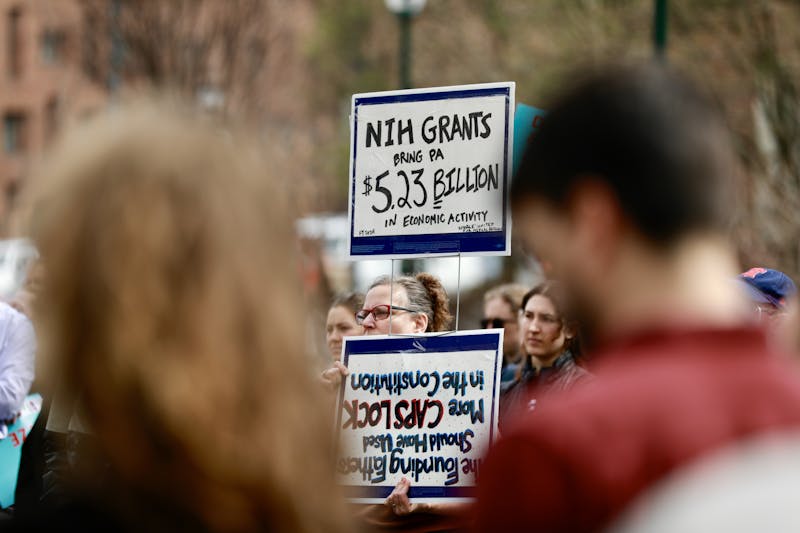
Igrew up in the echo of the words "never again." But on whatever day my fifth grade class was herded into a room to watch Schindler's List, in another part of the world, Hutus were killing Tutsis with machetes en masse. It's easy enough to mourn the dead, to be touched by a little girl in a red coat who is destined to die in a black and white world. The legacy of those who were killed many years ago in Europe, while the world looked away, is powerful. Our sorrowful remembrance, though, did nothing to save the Rwandans.
Today, the world is again faced with a choice, not so much of whether or not to look, but of whether or not to help. Last Thursday night, when President Bush and Sen. Kerry worked tirelessly, side by side, to differentiate themselves for voters, they agreed on one thing. Kerry spoke first. He explained that he would not commit troops to Sudan, a country engaged in an ongoing genocide. Mr. Bush then declined the opportunity to take the moral high ground. "I agree with my opponent," he said.
Some Americans say they long for politicians to set aside partisan politics, to quit bickering, and to, well, just agree on something. I dread such moments. Agreement happens when no one has the courage and moral dignity to argue. It's when nobody wants to go to the trouble to stop pollution, to pay for national health care or to stop genocide. Agreement is also what you do after all the people have already died. It's when you join hands and say how sad it is and how sorry you are. It's when you say, through clenched teeth and falling tears, "Never again." Agreement is for cowards.
Kerry puts conditions on the extent of his cowardliness. These conditions are meaningless. He says, "As president, if it took American forces to some degree to coalesce the African Union, I'd be prepared to do it because we could never allow another Rwanda. It's a moral responsibility for us in the world." His words might make sense, if we were talking about something that was going to happen in the future, rather than something that is already happening, right now.
Kerry is a U.S. senator, and he is neither ignorant nor powerless. If he is serious about preventing "another Rwanda," he doesn't have to wait to be elected president to do something.
Bush, meanwhile, is responsible for our shortage of available troops in the first place. As Kerry explains, our armed forces are overextended because of our war in Iraq. Our president's plan for aid in Sudan? Hope is coming. "My hope is that the African Union moves rapidly to help save lives," he said. "Fortunately, the rainy season will be ending shortly, which will make it easier to get aid there and help the long-suffering people there." Because the main reason that the United States of America, superpower to the world, can't help stop genocide is that it's raining.
When I wrote three weeks ago about the ongoing genocide in Sudan, I was impressed that our country was using the word "genocide." I thought that if we admitted that what was happening was truly horrible, we would not be able to ignore it. I was wrong. Now I've realized that while everyone is happy to talk about preventing genocide, few are willing to actually do anything about it. I'm happy that we're bearing witness. But when Timmy is trapped in a burning barn, Lassie doesn't just sit there barking. She runs for help. She nips at people's ankles. She is relentless. That is heroic.
By contrast, to bark once or twice and then roll over, to sound an alarm that we plan to act on someday, not now, is pathetic. If I could vote for one candidate over another on this issue, I would. Sadly, though, they're in agreement.
If you, like me, believe in the power of disagreement, I urge you to join me in writing and calling our congressmen (www.house.gov/writerep), our senators (www.senate.gov) and, of course, our president (president@whitehouse.gov). Tell them not to let Kristallnacht pass without acting decisively to end the genocide in Sudan.
Danielle Nagelberg is a junior International Relations major from Philadelphia. Schuylkill Punch appears on Tuesdays.
The Daily Pennsylvanian is an independent, student-run newspaper. Please consider making a donation to support the coverage that shapes the University. Your generosity ensures a future of strong journalism at Penn.
DonatePlease note All comments are eligible for publication in The Daily Pennsylvanian.







